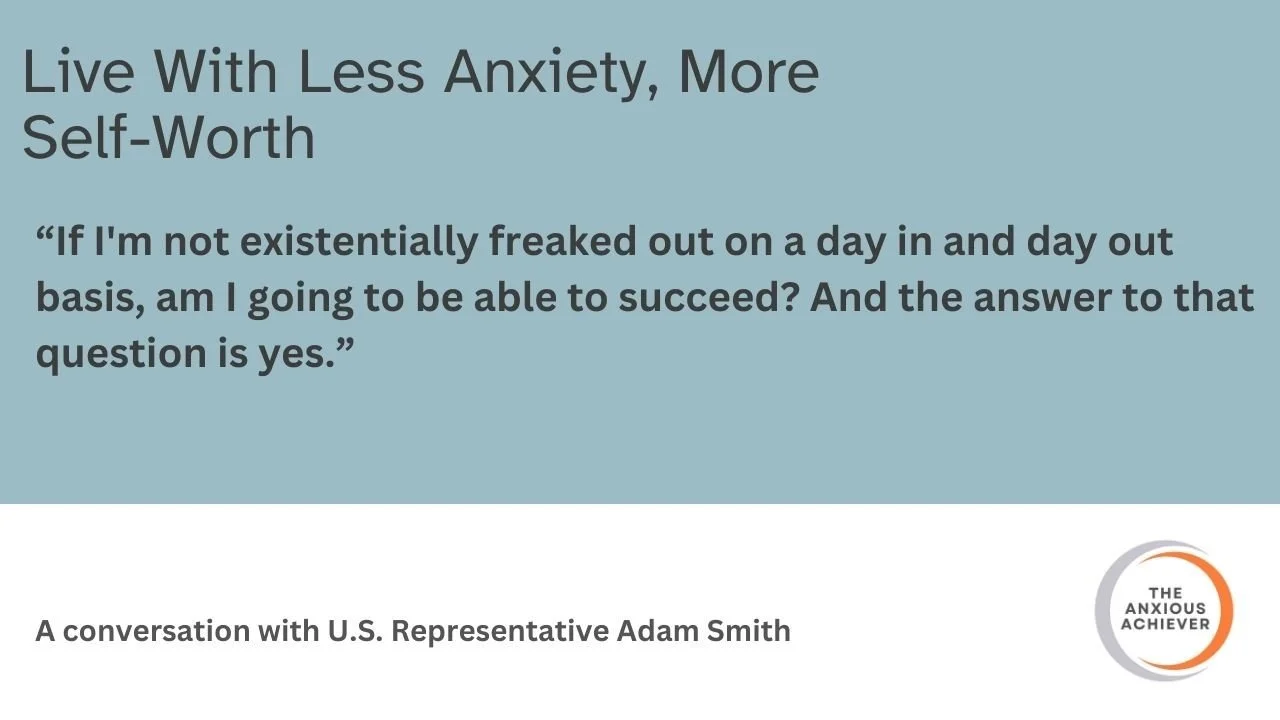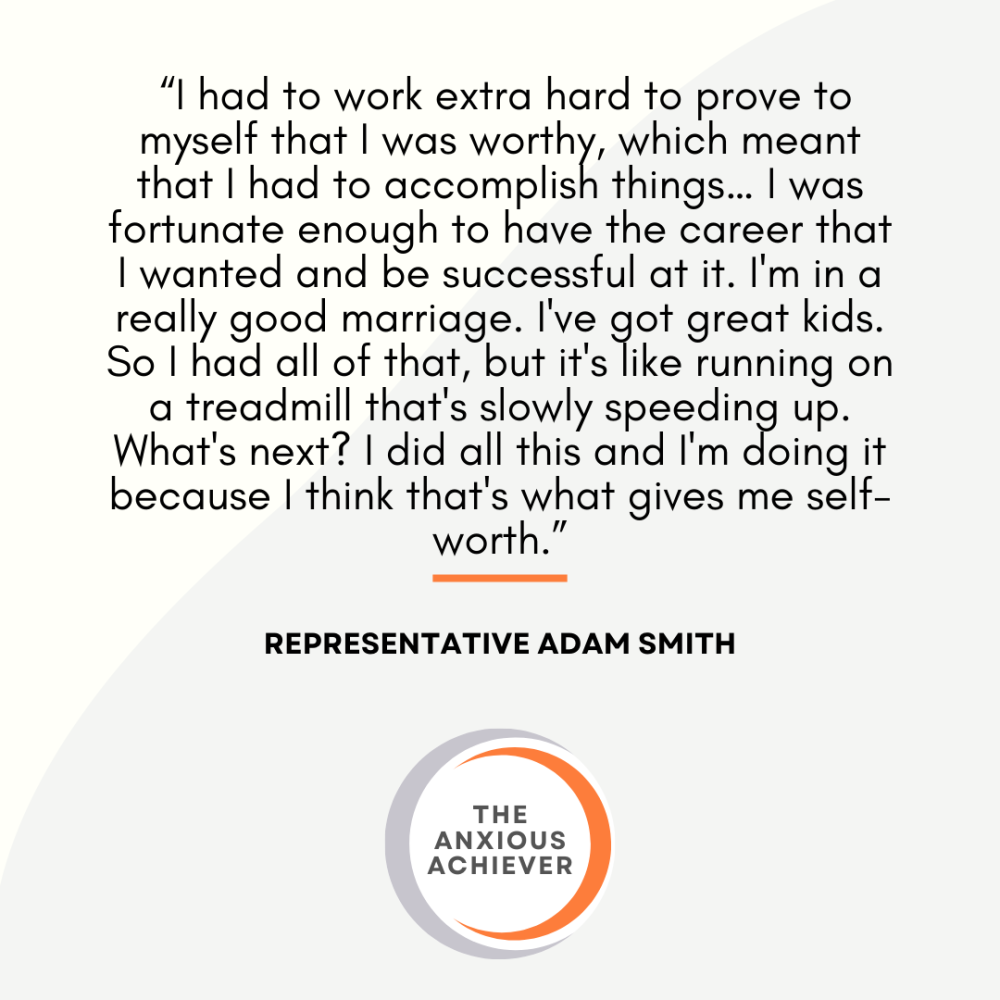How A Congressman Discovered The Path To Inherent Self-Worth (And Less Anxiety)
U.S. Representative Adam Smith, a Democrat from Washington State’s 9th Congressional District, serves as Ranking Member of the House Armed Services Committee, which is one of the most powerful positions in Congress. Smith travels the globe representing U.S. national security interests and also created the bipartisan Congressional Caucus for Effective Foreign Assistance (CCEFA) with former Congressman Ander Crenshaw.
And I’d also venture to say Adam Smith is a classic anxious achiever. In fact, he’s written a book about it, called Lost and Broken: My Journey Back from Chronic Pain and Crippling Anxiety, which I really enjoyed. Smith advocates for the healing role psychotherapy and resolving trauma has played in his life, and like a lot of us, for many years his anxiety drove him.
Smith says, “I have always cared a lot about what other people think of me. ….I'm genuinely worried about the world around me, what people think, and whether or not I'm being a good responsible person matters to me. And it's motivated me because of that anxiety and insecurity that's been with me my whole life.” For a while, Smith figured out how to use his anxiety to fuel a big career, which worked for him until it didn’t. How many of you can relate to that?
Smith always felt fear and insecurity. They were sort of constant companions, but they didn't mix well with his large ambitions. In his book he asks, “How could I be so ambitious and so utterly fearful of so many basic things?” I love that. Many of the anxious achievers I speak with feel this seemingly contradictory mix and I ask myself this question all the time!
When his anxiety stopped working for him, and instead stopped him in his tracks in the form of severe panic, Smith dug deep to heal his mental health. But, he cautions, it’s a process: “Don't think that treatment means ‘I'm never going to be nervous again. This isn't going to bother me.’ No. It's how you process it and how you deal with it. There's a path and you can make your mind work better for you in the same way that you can make your body work better for you.”
Smith’s a-ha moment came when a psychiatrist reviewed Smith’s intake questionnaire and said, “I see: you don't think you have the right to exist.” The doctor understood that Smith was lacking “a fundamental sense of my own worth. And that was putting an enormous amount of pressure on me…. And if you don't believe that [you’re worthy] then every single day you are in an existential crisis,” he says. “By definition, you are trying to prove that you're worthy of existing. And that, my goodness, we all fail.”
What Smith learned in therapy is simple but so, so hard: We all have self-worth, just because we’re human beings. And as I listened to him say this I thought to myself, I know I should think this is true but I don’t feel this way about myself. That made me sad, because I know there’s light on the other side, and Smith is living it.
I asked Smith an honest question, because I’m not sure I know the answer. What does it feel like to face the day with a sense of inherent self-worth, versus his anxious before times?
He didn’t hesitate before saying: “It's unbelievable…. I [was] always the guy who's worried, worried, worried. To my mind, that was how I succeeded…. If I'm not existentially freaked out on a day in and day out basis, am I going to be able to succeed? And the answer to that question is yes.
“And that was the most beautiful thing in the world. I was in the middle of an epic political fight in 2019 when I was finally getting to the other side of the psychotherapy and my hip [pain] was starting to feel better. And I went into that battle and in the middle of it I was like, this is awesome. I'm not driving myself into the ground, but I'm still thinking, I'm still working. I'm still the obsessive, let's figure this out, get it done person. I did all of it, but without the anger and self-loathing. It's so much better that way.”
It’s so much better that way. Yes. #Goals!
Morra



